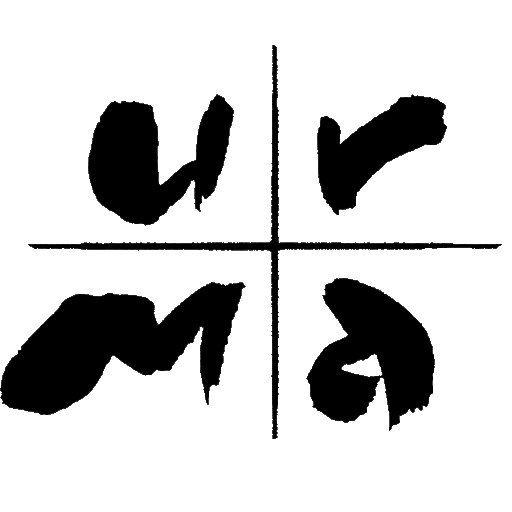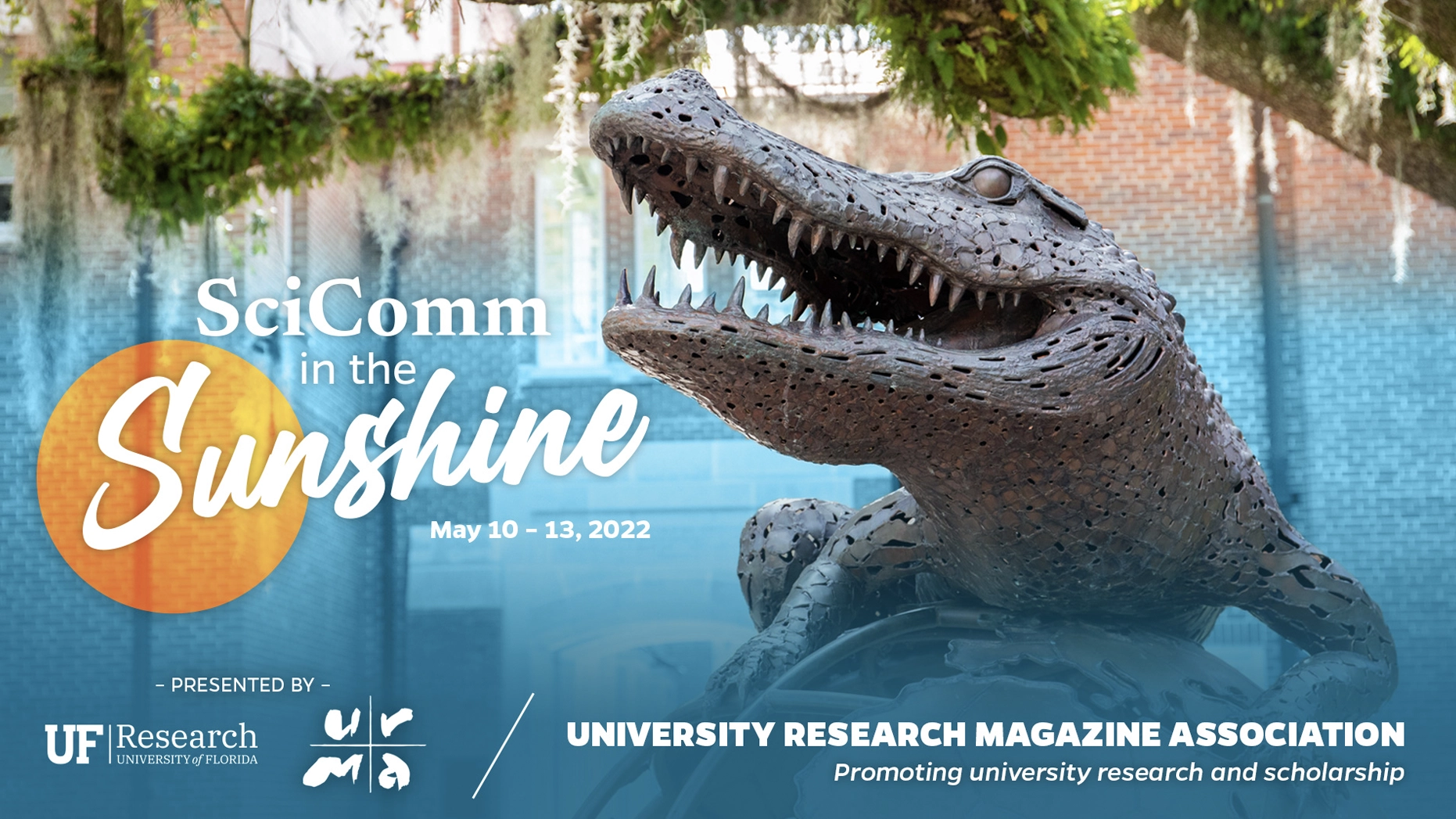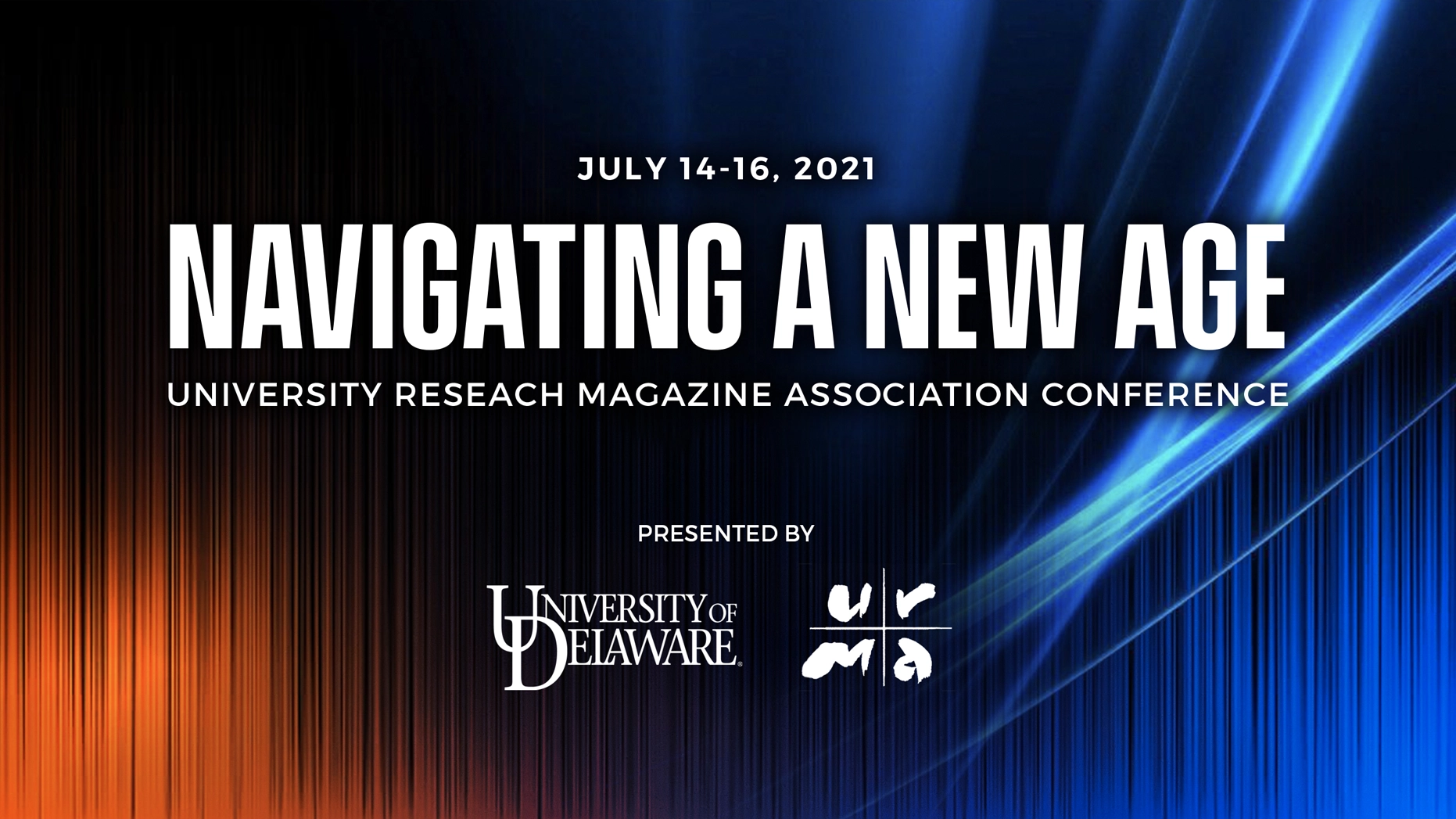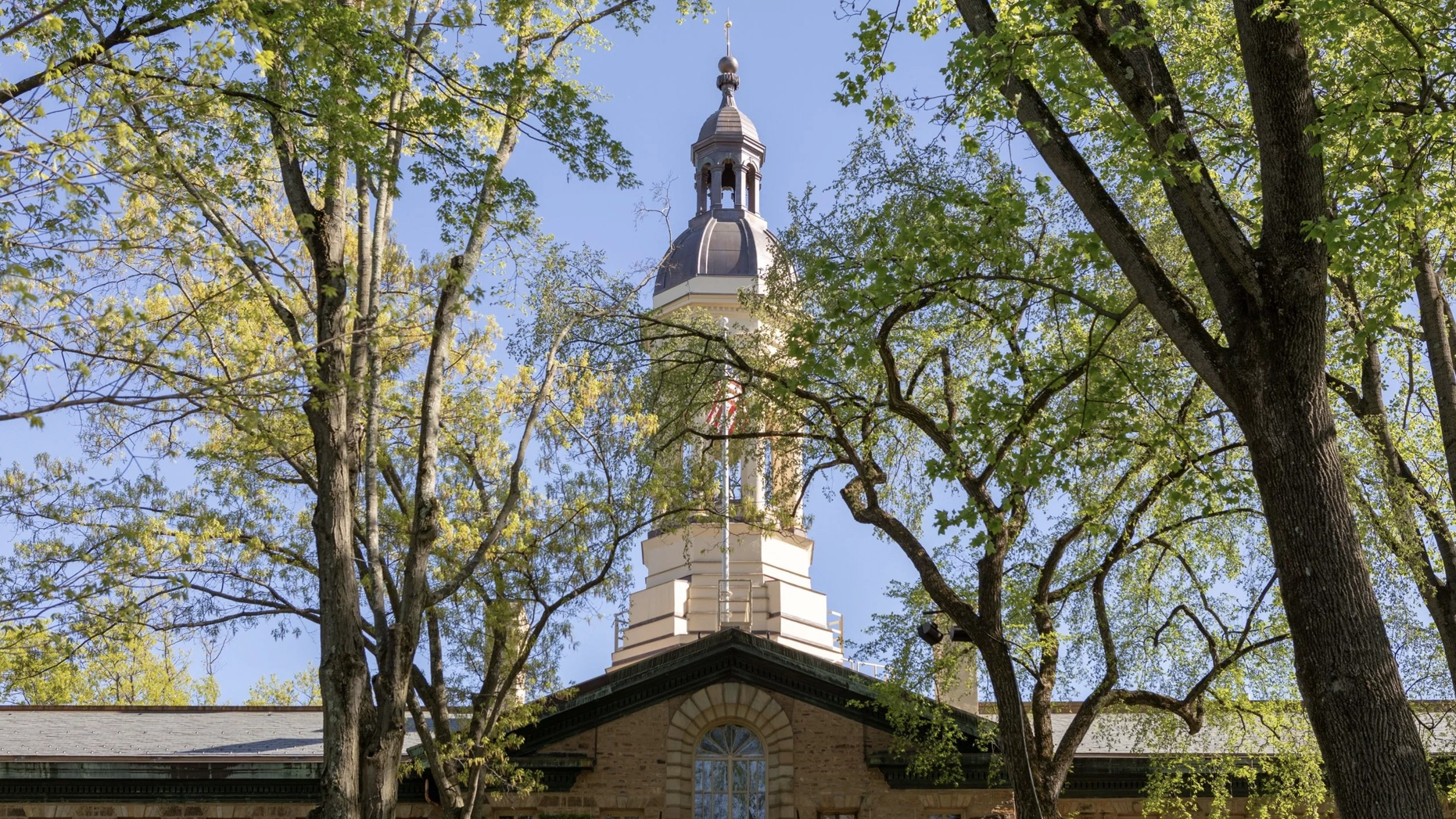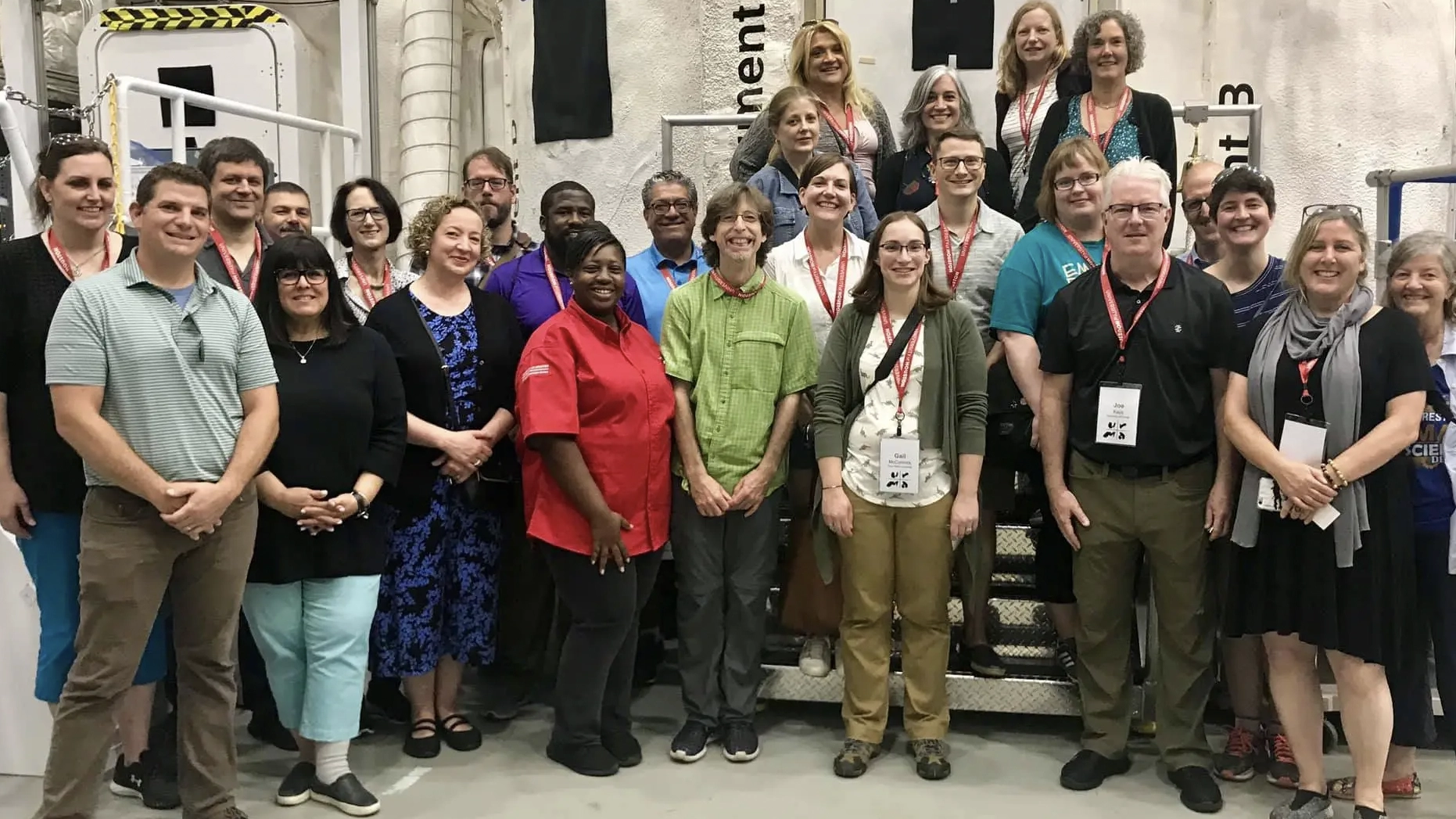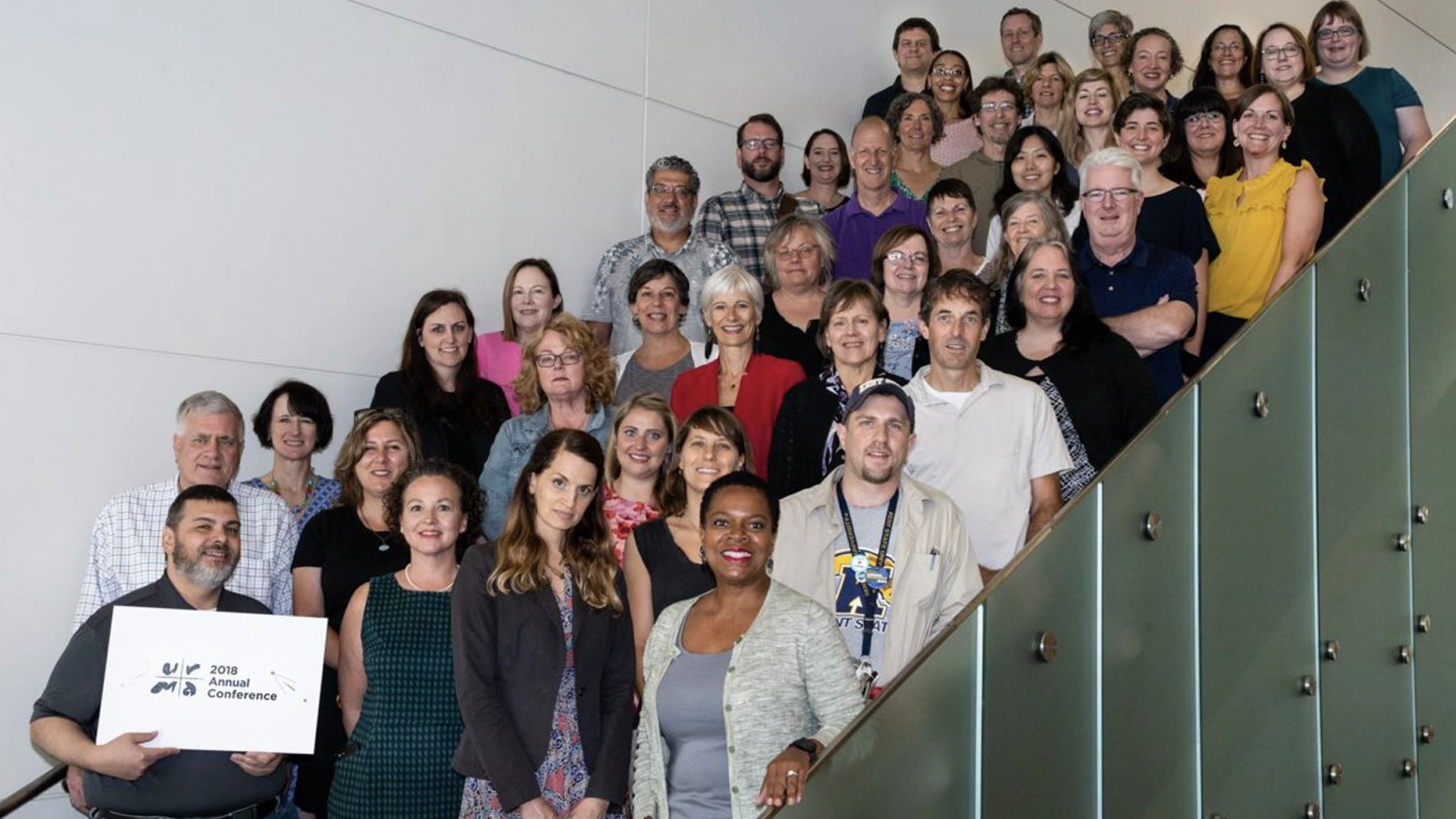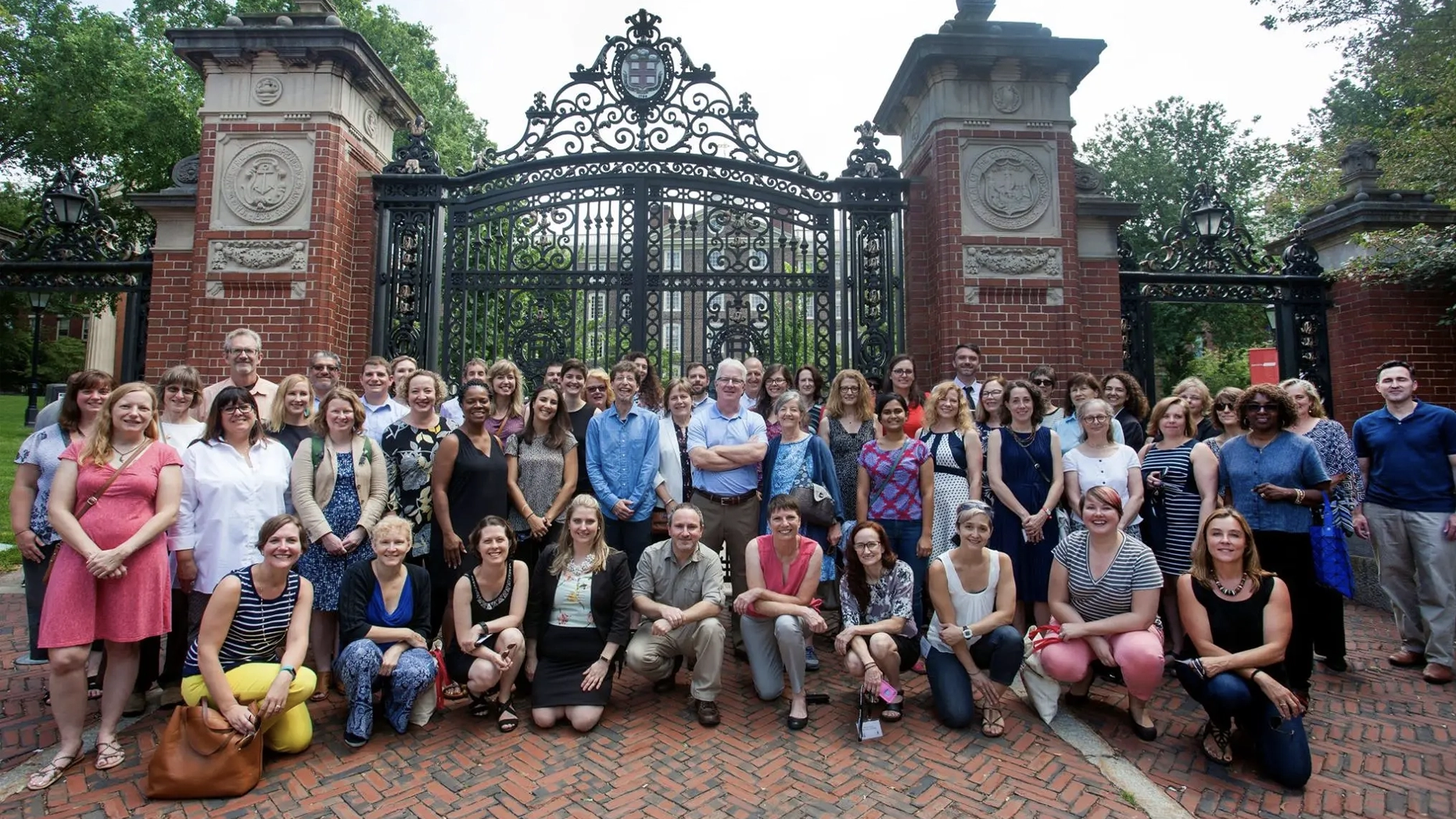URMA CONFERENCE 2021 • JULY 14-16

URMA Conference 2021
Join us virtually in Blue Hen Country for URMA 2021 at the University of Delaware! You’ll connect with colleagues from universities and institutions who communicate about research through online and print magazines, media relations, social media, videos, podcasts and more. Our conference features practitioners in realms such as journalism, design, photography, multimedia and other areas relevant to telling the stories of research. If you communicate about your institution’s research, URMA’s annual conference is for you.
Not a member? Find out how to join URMA.

2021 URMA Host Institution
Registration
July 14th Agenda
12 PM (EDT): Welcome followed by Emerging from the Pandemic: Transitions, Takeaways and Moving Forward
As the world gains the upper hand in the fight against COVID-19, communications leaders from several federal agencies will talk about some of the challenges their teams have faced and any silver linings, new initiatives they are planning, and how URMA members can best collaborate with federal partners, moving forward.
SESSION PANELISTS

Rick Borchelt
MORE

Allison Eckhardt
MORE

Amanda Hallberg Greenwell
MORE

Renate Myles
MORE
1:30 PM (EDT): So you want to set up a science communications training program for faculty …
Many of us work one-on-one with faculty to prepare them for media interviews and presentations. But what does it take to develop a full-fledged training program? Communications leaders at UC Davis and UC San Diego will share insights from their successful programs. This is an URMA hot topic, based on our member survey, so don’t miss it!
SESSION PANELISTS

Mario Aguilera
MORE

Kim Rubinstein
MORE

Sherry Seethaler
MORE

Dana Topousis
MORE
July 15th Agenda
12 PM (EDT): Cultivating Community – Progress and Possibility
The struggle for justice filled streets across the U.S. and around the globe during the past year, as the COVID-19 pandemic laid bare layers of inequities and injustices that have plagued racial minorities. How can we help cultivate a more just society? In this inspirational and educational session, we’ll learn about the “Black Voices in Research” storytelling project at the University of Florida; the latest research and practical advice on allyship from University of Delaware experts, and one URMA member’s quest to write about all people with dignity.
SESSION PANELISTS

Kathryn Jepsen

Jennifer Joe
MORE

Tiffany Danielle Chisholm Pineda
MORE

Wendy Smith
MORE
1:30 PM (EDT): Firehose Session — URMA Members Share a Splashy Array of Expertise & Creativity (each presentation limited to 5 minutes)
SPEAKERS
- Going Where Few Microphones Have Gone Before: Bringing University Research to the Podcast World — Nancy Bazilchuk, Norwegian University of Science and Technology
- Test Your Knowledge: Creating an Immersive Experience — David Barczak, University of Delaware
- Learnings from Content Marketing — Edyta Zielinska, Thomas Jefferson University
- Four Tips for More Effective Media Relations — John Toon, Georgia Tech
- Keep Calm and Carry On: Covering International Field Research During a Pandemic — Alyssa LaFaro, University of North Carolina at Chapel Hill
- Animating Science for Impact — Jeffrey Chase, University of Delaware
July 16th Agenda
12 PM (EDT): Science in the Media – Popular Images and Public Perceptions (Forthcoming Book)
Science has profound effects on society, but public perceptions also carry crucial implications for science — affecting what research takes place and who becomes a scientist, and shaping whether laypeople heed the scientific community’s recommendations. This presentation will show how popular media influence audience beliefs about science and scientists. It also will illuminate how scientists and media producers can craft messages that bridge gaps between the scientific community and the public and foster engagement with science.
SESSION PANELISTS

Paul R. Brewer
MORE

Barbara L. Ley
MORE
1:00 PM (EDT): So you want to set up a science communications training program for faculty …
This panel discussion will feature journalists from a variety of national media outlets. Find out how their world changed with the pandemic, what stories they want and how you should pitch them your experts and story ideas.
SESSION PANELISTS

Jacqueline Howard
MORE

Purbita Saha

